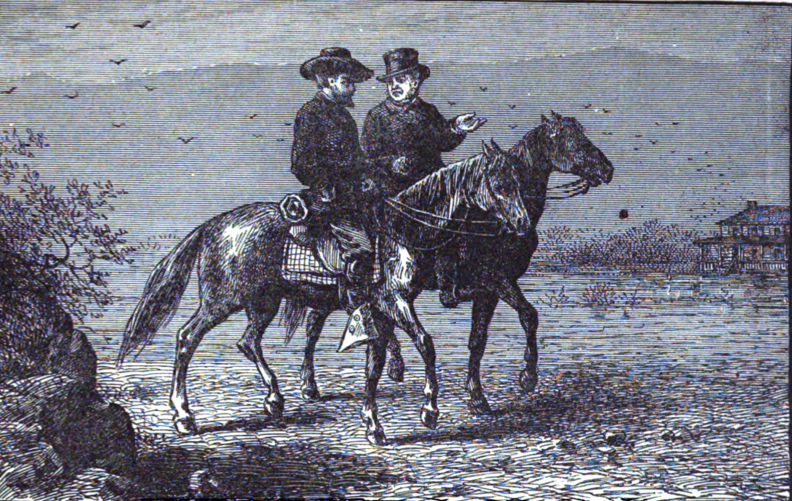|
||||||||||||||||||||||||||||||||||||||||
|
 "Oh, E's all right. 'E'll get another bit of land some'er's," illustration for Driven from Sea to Sea; or, Just a Campin', 1884. Larger. True, the men might go back to mining. There would be mines in the vicinity of the claims they expected to locate, but these men had lost all faith in their luck with the pick. They had worked at it, more or less, all of them, but none had ever "struck it rich." . . . These men were not speculators, not gamblers by nature. There were men who loved best the quite of home and the peaceful pursuits of agriculture. Farmers and farmers' sons back in the States, a brief experience in mining had satisfied most, and all had tried it until there were satisfied. What they wanted was an opportunity to earn their living and make homes for themselves and families in obedience to nature's laws and their own inclinations, by the cultivation of the soil, and the gathering of its ripened fruits and grains.Though never a best seller, Post's novel did go into two printings, and helped to fuel popular anger over the excessive power enjoyed by California mining and railroad corporations. |
|||||||||||||||||||||||||||||||||||||||
|
© 2000-2013 California Legacy Project, Santa Clara University English Department, Santa Clara University, 500 El Camino Real, Santa Clara, CA 95053.
For more information: Terry Beers, 408 554 4335, or . 



|
|

|







